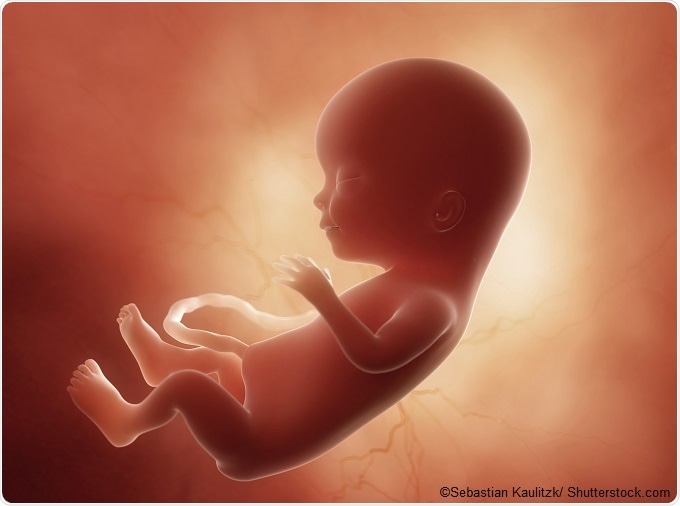Supplementing the diet with vitamin B3 during pregnancy may treat the molecular deficiencies in women that can lead to birth defects, according to a landmark study in Australia.
Over the last 12 years, developmental geneticist Sally Dunwoodie (Victor Chang Cardiac Research Institute, Sydney) and team have been studying the genes that influence fetal heart and bone development. Genetic sequencing of four families with offspring affected by heart and bone defects showed that the families had gene mutations that affected the production of a molecule called nicotinamide adenine dinucleotide (NAD), which is essential for energy storage and DNA synthesis in cells.

Image: 3D rendered medically accurate illustration of a fetus in week 15.
The researchers have now described the mutations in the New England Journal of Medicine. The article also reports on studies showing that NAD deficiency in pregnant mice caused pups to be born with severe birth defects and that those defects could be prevented by vitamin B3 supplementation during pregnancy.
The researchers knocked out the genes associated with NAD production in pregnant mice, to see whether pups were born with similar defects to those seen in the human babies. Initially, all pups were born healthy, but then the researchers realised that mouse chow is rich in niacin (vitamin B3), which cells can use in place of nicotinamide to make NAD.
The researchers then tried feeding the knock-out pregnant mice a diet that did not include niacin. This time, many of the pubs died before birth and those that were born had severe defects similar to the ones seen in the human babies. Next, the researchers fed the mutant mice low doses of niacin during pregnancy, which reduced the severity of the birth defects. When they tried feeding pregnant mice a diet rich in niacin, healthy litters of pups were born.
More human studies are needed before B3 supplementation could be recommended for pregnant women, but the current research suggests it may help to prevent birth defects in the offspring of families with NAD-related gene mutations.
“The ramifications are likely to be huge. This has the potential to significantly reduce the number of miscarriages and birth defects around the world and I do not say those words lightly,” says Dunwoodie.